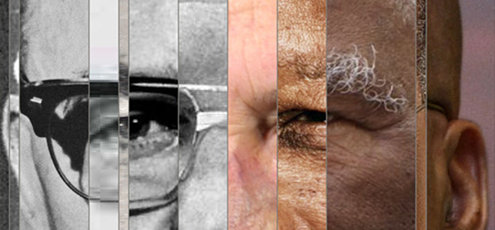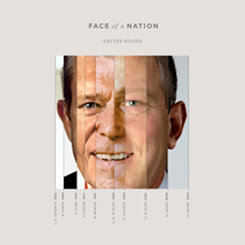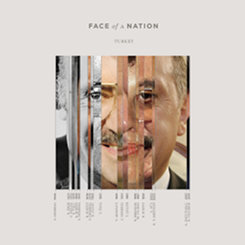Faces of nations, what composite national leaders look like

Turkish-born, Amsterdam-based art-director Güney Sokayn had this simple but intriguing question – do composite portraits of natians’ leaders say something about those nations?
On his project page he explains:
Consciously or sub-consciously, you rarely think of Germany without picturing Angela Merkel or of Russia without Vladimir Putin. Because whether we like it or not, the political leader of our country represents how the world perceives their nation. But is it a reflection of that nation’s people? […]
This is where the idea for Face of a Nation originates. It is a personal curiosity project that aims to create portraits of different nations based on their leaders from the past 50 years.
To this end, Soykan took photos of presidents and prime ministers, spliced them vertically and put the resulting strips together, forming new, composite portraits. The strips are ordered by the periods these men (and the odd woman) governed. The width of each bar represents the duration of each government.
Although perhaps the most important lesson is how boring leaders look, some trends can be clearly spotted, and I am not just talking about the switch from black-and-white to colour photography. The end of apartheid in South Africa is visible, because all subsequent presidents after De Klerk were black (top illustration, detail). American presidents lead for exactly four or eight years (bottom left). Syria and North Korea are hereditary dictatorships. And if you are the leader of Turkey (bottom right) or Italy, you should probably make sure your LinkedIn profile is up to date.


Illustrations: Güney Soykan.

Leave a Reply